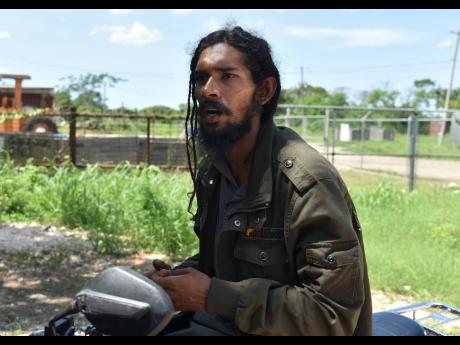Farm fury over Innswood housing plans
Agricultural interests demand clawback of arable lands
Agricultural interests have vigorously opposed the planned repurposing of 3,000 acres of prime farmlands in Innswood, St Catherine, to include over 1,000 acre for the development of housing solutions by investors led by billionaire business mogul Michael Lee-Chin.
The resistance represents the latest episode of a philosophical tug of war between lobbyists keen to preserve arable land for Jamaica's food security and others who believe the housing boom should stretch to the southern corridor, which carries thousands of commuters from St Catherine into the capital.
President of the Jamaica Agricultural Society, Lenworth Fulton, has accused the Holness administration of speaking out of two sides of its mouth.
“While we are not against Mr Lee-Chin going into housing, they should find appropriate lands for housing investments. We cannot use arable agricultural lands with irrigation systems already in place to build houses,” Fulton said in a Gleaner interview on the weekend.
“... They came to us, and we supported a food-security drive to make Jamaica sufficient in food. This cannot be done without lands,” Fulton stressed.
The original mega farm concept floated two years ago was slated for the cultivation of onions, watermelons, and carrots alongside mango and soursop orchards.
Fulton has called for a give-back of the Innswood farmlands for agriculture, counterproposing a swap of other property more suitable for housing development.
Norman Scott, chairman of the St Catherine Municipal Corporation, said that no change-of-use request has as yet been submitted to the council for the Innswood lands in question. However, he suggested that it would not be unusual for landowners to circumvent the local authority.
“The first thing is to seek an objection letter from the corporation, and this was not done. However, we know that some have bypassed the local authority in the past, so I would not be surprised if it happens in this instance,” Scott, mayor of Spanish Town, said, without giving further details.
The supply deficit in Jamaica's housing market is stark - even if the Government delivers on its pledge for 70,000 new homes in its five-year term, which started in 2020.
Scott said that while he supports the push for housing, he strongly opposes the use of agricultural lands as the means to that end. He has also cautioned against investors capitalising “on undervalued government agricultural lands and transforming them into commercial entities”.
That is also a concern held by the parliamentary Opposition, which said the land acquisition might unduly benefit private investors.
It has called for the Government to demand that Portland Holdings relinquish its claims to the Innswood lands and instead offer them other property.
“These disclosures must include an audit of all government-owned property within the Bernard Lodge area and adjoining areas such as Innswood Village, where large acres of land were divested by SCJ holdings leading up to the 2020 general elections. We need to find out how much land was divested, and to whom, as well as the purpose for which they were bought and are being used,” said Opposition Spokesman on Agriculture Lothan Cousins.
Calls to Agriculture Minister Pearnel Charles Jr went unanswered Saturday and Sunday.
The fate of Model Agricultural Production Limited, which grows crops for local and overseas consumption on vast acreages of Innswood lands, is uncertain.
Calls to head of the venture, Israeli national Gideon Siterman, went unanswered.
The company has invested US$1.5 million in equipment, testing combination drip and sprinkler irrigation systems, as well as increasing materials and chemicals for land preparation, to raise production levels.
Meanwhile, agricultural workers employed to the company were restive on Saturday.
“Since we heard of the switch to housing, everybody worried. Right now, we don't know what to expect,” said Christopher Thompson, an agricultural worker.
“We were told that we will be given 60 days off from work,” he said.
Jason Cargill, an irrigation supervisor, has expressed anxiety about the future. He warned that any preferential switch to housing over agriculture on the farmlands would be rejected by the people.


